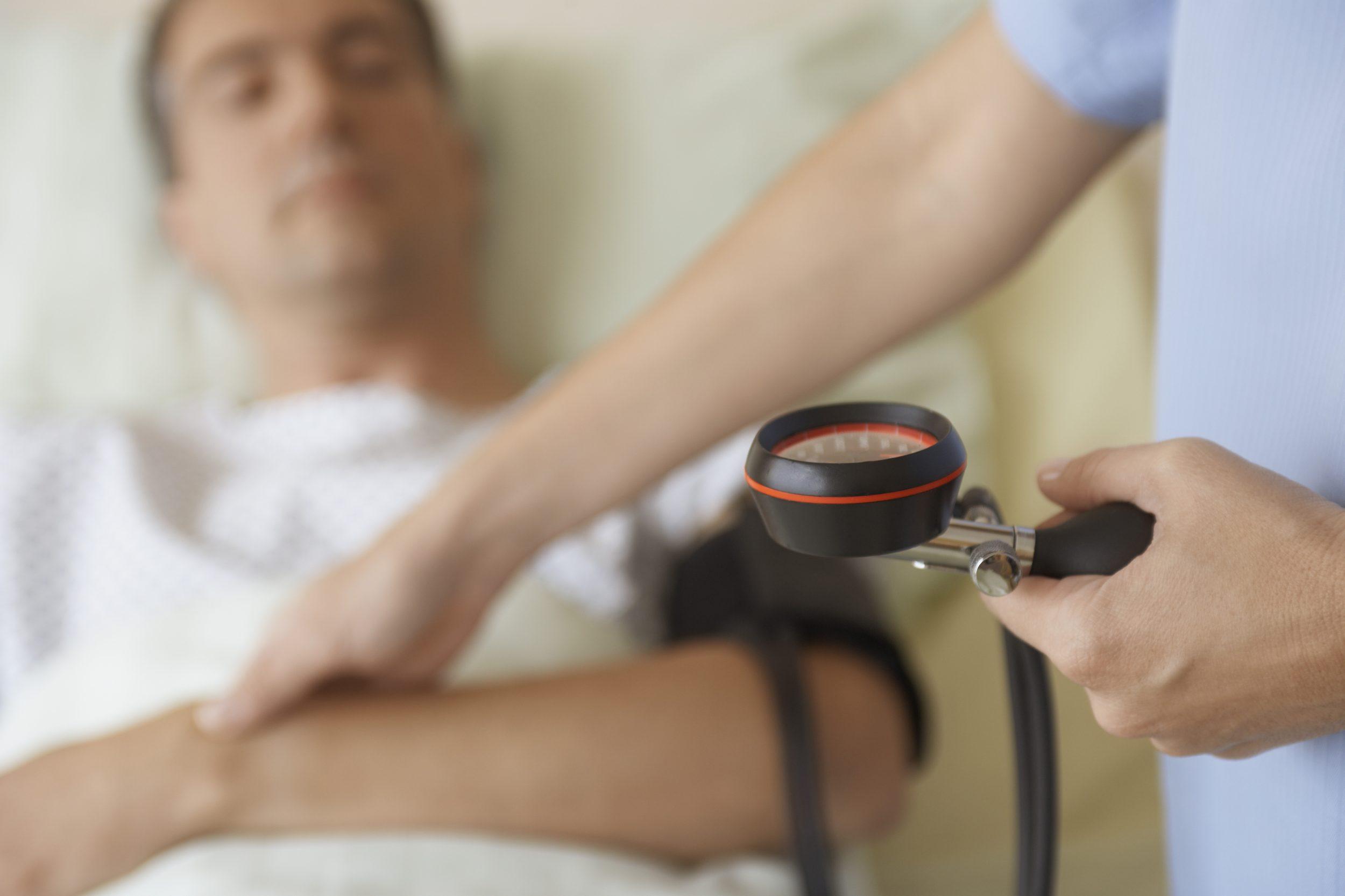
Job of a Telemetry Nurse
A Telemetry Nurse job description includes monitoring, reading, and recording the outputs of an ECG to monitor a patient’s heart. Telemetry nursing is one of the most critical, and in many ways one of the best nursing careers, in the field. Nurses working in this field are specialized and care for critically ill patients. Other names for a Telemetry Nurse include Telemetry RN, Telemetry Registered Nurse, Registered Nurse Telemetry, and also Staff Nurse Telemetry Unit.
Telemetry nurses use specialized medical technologies to monitor the condition of patients in telemetry units. Machines monitor, interpret, and record data. Also, telemetry nursing involves providing basic patient care, administering medications, and educating patients about their health conditions.
These healthcare professionals provide direct patient care to patients with special needs, those that are just out of emergency surgery or care, elderly patients, and those with ongoing health conditions.
What is Telemetry Monitoring?
Telemetry nurses specialize in monitoring, reading and recording the outputs of an electrocardiogram which converts the heart’s electrical impulses into a visible and readable rhythm. They are trained to detect harmful changes in these readable rhythms and notify the doctor on duty.
Also these healthcare specialists monitor patient vital signs such as oxygen levels, blood pressure, and tracking routine heart rate. If an irregular heart impulse is noticed, telemetry nurses may help with some procedures such as treatments for cardiac and cardiovascular emergencies. They are also required to have an advanced medical knowledge and interpersonal skills, such as those learned in an RN to BSN program. So, what does a telemetry nurse do?

Telemetry RN Job Responsibilities
What are the duties of a telemetry nurse? Below are some additional telemetry nurse duties and telemetry nurse responsibilities.
- Perform various diagnostic test and analyze medical equipment measurements
- Track patient’s vital signs- routine heart rate, blood pressure, and pulse oximetry measurements
- Monitor cardiac rhythm using remote electronic signals
- Administering medications required and administering specialized treatment
- Educating patients on cardiac issues, answering questions, and explaining tests results
- Update family members on the patient’s medical condition
- Studying patients medical history, treatment plans, and test results
- Instructing telemetry unit staff including telemetry technicians and nursing assistants
- Help doctors with various procedures and performing treatment interventions
- Monitor electrocardiograms output and keep the doctor informed
- Keeping medical records, updating ward charts and medical records




What Skills Do Telemetry Nurses Need?
Telemetry nurses must have a natural desire to care for and help other people who may require their needs. Also, they must have the desire to provide information to their patients in a way they can easily interpret and understand. Telemetry nurses must have a high interest in pharmacology and mathematics since both skills are essential for the proper execution of their tasks.
Furthermore, they need to have a great deal of compassion, and empathy and at the same time understand their patient’s problems and have the ability to offer a wealth of moral support to the patients. Below are some of the Telemetry nurse skills and qualifications.
- Strong communication skills
- Ability to multitask efficiently
- Patience and empathy in dealing with patients and their families
- Ability to interpret and analyze patient data
- Strong technical aptitude and aptitude to learn new technologies
- Ability to work independently and collaboratively
- Flexibility and willingness to take on new challenges
- Excellent problem solving and critical thinking skills
- Proficiency in using relevant software and databases
- Detail oriented with excellent attention to detail and accuracy
- Computer proficiency, especially with specialized medical technology
- Knowledge of best practices in patient care and medical treatment
- Ability to keep detailed, organized records and reports
- Trustworthiness and integrity




Where Do Telemetry Nurses Work?
Telemetry nurses typically care for critically ill patients with preexisting heart conditions, heart disease COPD, renal failure, obese patients, congestive heart failure, diabetics, advanced cancer, elderly patients, and transfers from the ICU and ER.
Progressive care telemetry nurses work in hospitals on a telemetry unit. Other names for these units are intermediate care units, direct observation units, transitional care units, and step-down units. They may also work at acute care facilities, nursing homes, and in-home health care settings.
How Do You Become a Telemetry Nurse?
Complete a Nursing Degree Program
To become a telemetry nurse, you will need to complete a nursing degree program. This typically involves obtaining a Bachelor of Science in Nursing (BSN), but an Associate Degree in Nursing (ADN) is also acceptable. Nursing diploma programs cannot be used for telemetry nursing. Additionally, most employers and healthcare facilities prefer nurses who have a BSN degree.
Earn a Registered Nursing (RN) License
After completing the necessary degree program, the next step is to earn a registered nursing (RN) license. To do this, applicants must pass the National Council Licensure Examination for Registered Nurses (NCLEX-RN). Then they may apply for a license in the state where they wish to practice.
Gain Experience
To become a telemetry nurse, it is important to gain experience in the field. Many times, hospitals and other medical facilities offer internships to nursing students. Contact your local hospitals to inquire about internships and Telemetry Training.
Earn a Certification
The final step is to earn a telemetry nurse certification. The American Association of Critical Care Nurses (AACN) offers the PCCN certification. A Progressive Care Certified Nurse (PCCN) certification is for nurses who provide direct care to acutely ill adult patients. Nurses with this certification may work in intermediate care, direct observation, step down units, telemetry units, emergency departments, and transitional care.
To earn a certification, applicants must meet the below requirements, complete the course of study, and pass a certification exam.
- A current unencumbered RN or APRN license
- two years of practice as an RN or APRN for 1,750 hours in direct care of acutely ill adult patients OR
- five years of practice as an RN or APRN for 2,000 hours in direct care of acutely ill adult patients
Other Certifications
Most hospitals require telemetry nurses to have American Heart Association Basic Life Support (BLS) and Advanced Cardiac Life Support (ACLS) certifications prior to employment.
Also, earning the following additional certifications provides an opportunity for individuals who would like to father their career and increase their salaries. AACN Specialty Certifications include:
- CCRN is for nurses providing direct care to acutely or critically ill adult, pediatric or neonatal patients.
- CCRN-K is for nurses who influence the care delivered to critically ill adult, pediatric patients or neonatal patients, but do not primarily or exclusively provide direct care.
- CCRN-E is for nurses working in a teleICU monitoring and caring for acutely or critically ill adult patients from a remote location.
- PCCN is for progressive care nurses providing direct care to acutely ill adult patients.
- PCCN-K is for nurses who influence the care delivered to acutely ill adult patients, but do not primarily or exclusively provide direct care.
- CMC Subspecialty Certification is for certified nurses providing direct care to critically ill adult cardiac patients.
- CSC Subspecialty Certification is for certified nurses providing direct care to critically ill adult patients during the first 48 hours after cardiac surgery.
Professional Organizations
- American Association of Critical-Care Nurses (AACN)
- American Board of Neuroscience Nursing (ABNN)
- National Telemetry Association (NTA)

Telemetry Nurse Salary Expectations
Telemetry nurse salary depends on the advancements made and the type of specialization they have. Also, the type of certifications such as monitoring sleep orders, cardiac telemetry, and neurological issues may determine their salaries. They are trained to work in a variety of environments including clinics, hospitals, childcare environments, research facilities, and many others, and because they are so crucial, they can choose to live in the highest-paying cities for nurses, knowing they will be in demand.
Many factors affect the annual salaries for telemetry nurses including educational level, credentials and certifications, years of experience, job title, employing organizations, and also geographic location. However, the US Bureau of Labor Statistics (BLS) reports the average annual salary of a registered nurse is $77,600 per year.
Because of the job specialization, Telemetry Nurses typically earn more than regular RNs. However, the salary can vary significantly based on location and experience. Generally, telemetry nurses may earn 10-15% more than regular RNs. Below are some estimates from various job and salary reporting sites of the median salary for an telemetry nurse.
| Source | Salary |
|---|---|
| Indeed Telemetry Nurse Salary | $137,152 |
| ZipRecruiter Telemetry Nurse Salary | $95,179 |
| Zippia Telemetry Nurse Salary | $77,351 |
| BLS RN Salary | $77,600 |

What is the Telemetry Nurse Job Outlook?
Telemetry nurse careers offer job security and positive growth. The Bureau of Labor Statistics (BLS) reports the employment of registered nurses is projected to grow 6 percent from 2021 to 2031. Due to the increase in healthcare facilities, a shortage of nurses in general, and their specialized training, the demand for telemetry nurses is high.
With cardiac problems being the major health issue that affects most individuals, most governments understand what telemetry monitoring and they are looking for ways to enter an in-demand specialty and make telemetry nursing a stable and rewarding career.
Related Nursing Jobs
Are you interested in becoming a specialized nurse but not sure if telemetry nursing is right for you? Telemetry nursing is just one of many specializations for nurses. Below are some other related nursing jobs to consider.
- Emergency room (ER) nurse
- Telehealth nurse
- Nurse case manager
- Oncology nurse
- Hospice nurse
- Charge nurse
- Nurse practitioner (NP)



What is the Difference Between a Telemetry Nurse and a Critical Care Nurse?
A telemetry nurse is a nurse who monitors and manages patient vitals and safety while they’re in the hospital, typically found in a step-down unit. Telemetry nurses monitor and assess vital signs, including blood pressure, heart rhythms, and other indicators of a patient’s condition. They provide patient care and education, respond to physician orders, and help regulate IVs and other medications.
A critical care nurse is a nurse who cares for patients in an intensive care unit (ICU). These nurses specialize in administering critical and complex care to patients who are severely ill or injured. Unlike telemetry nurses, they are also involved in more invasive treatments, such as intubation, chest tube placement, and patient transport. Critical care nurses have advanced training in highly specialized critical care procedures.
Related:






